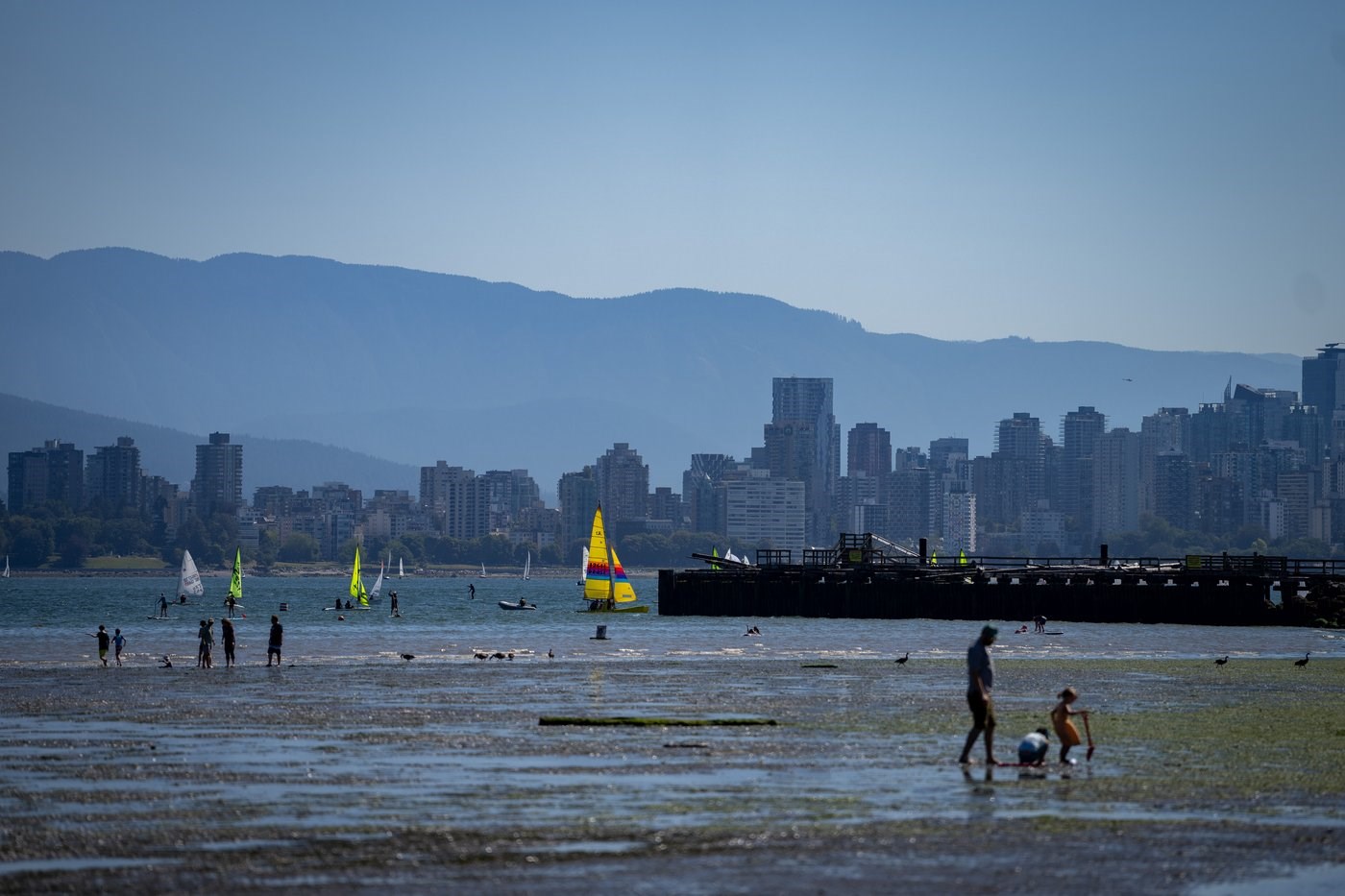
People walk on the beach during low tide as sailboats pass in Vancouver, Sunday, July 7, 2024. Heat warnings have been put in place for the Metro Vancouver area for elevated temperatures. THE CANADIAN PRESS/Ethan Cairns
Republished August 11, 2025 - 11:22 AM
Original Publication Date August 11, 2025 - 8:11 AM
VANCOUVER — Heat warnings across parts of southern British Columbia and Vancouver Island over the weekend have been expanded to Metro Vancouver.
Environment Canada said Monday that a heat warning is active for both Metro Vancouver and the Fraser Valley for at least two days, with temperatures possibly reaching 33 C.
The temperature is not expected to drop below 17 C overnight, and the weather agency says the warnings are expected to persist until Wednesday.
"A ridge of high pressure is bringing elevated temperatures to the South Coast," the heat warning for Metro Vancouver says. "Due to strong northwesterly winds over the Strait of Georgia, areas near the water will likely get a reprieve from the heat, but away from the water, daytime temperatures will reach the low 30s."
Environment Canada had issued warnings Saturday for regions including the Fraser Canyon, South Thompson, South Okanagan, Howe Sound, Whistler, Pemberton and inland and eastern Vancouver Island.
Those warnings have also been extended through Tuesday, with the temperature expected to reach 35 C in Fraser Canyon, South Thompson and South Okanagan.
Daily daytime high records were broken in several communities Sunday, with Nanaimo hitting 34.2 C, breaking a record set in 1981, while Sechelt's 31.6 C displaced a record from 2014.
WorkSafeBC has also issued a warning to employers, asking them to ensure heat risks for employees are being managed.
The worker-safety agency says in a statement that heat stress is a major risk for employees, both indoors and outdoors, and says it has received 315 heat-related injury claims from 2020 to 2024.
"Employers must assess the risk of heat stress in their workplaces and implement effective controls to protect workers," the statement said, adding that mitigation plans may need to be put in place.
"If employers are unable to effectively control the risks from extreme heat to keep their workers safe, WorkSafeBC advises them to stop work until conditions improve."
This report by The Canadian Press was first published Aug. 11, 2025.
News from © The Canadian Press, 2025